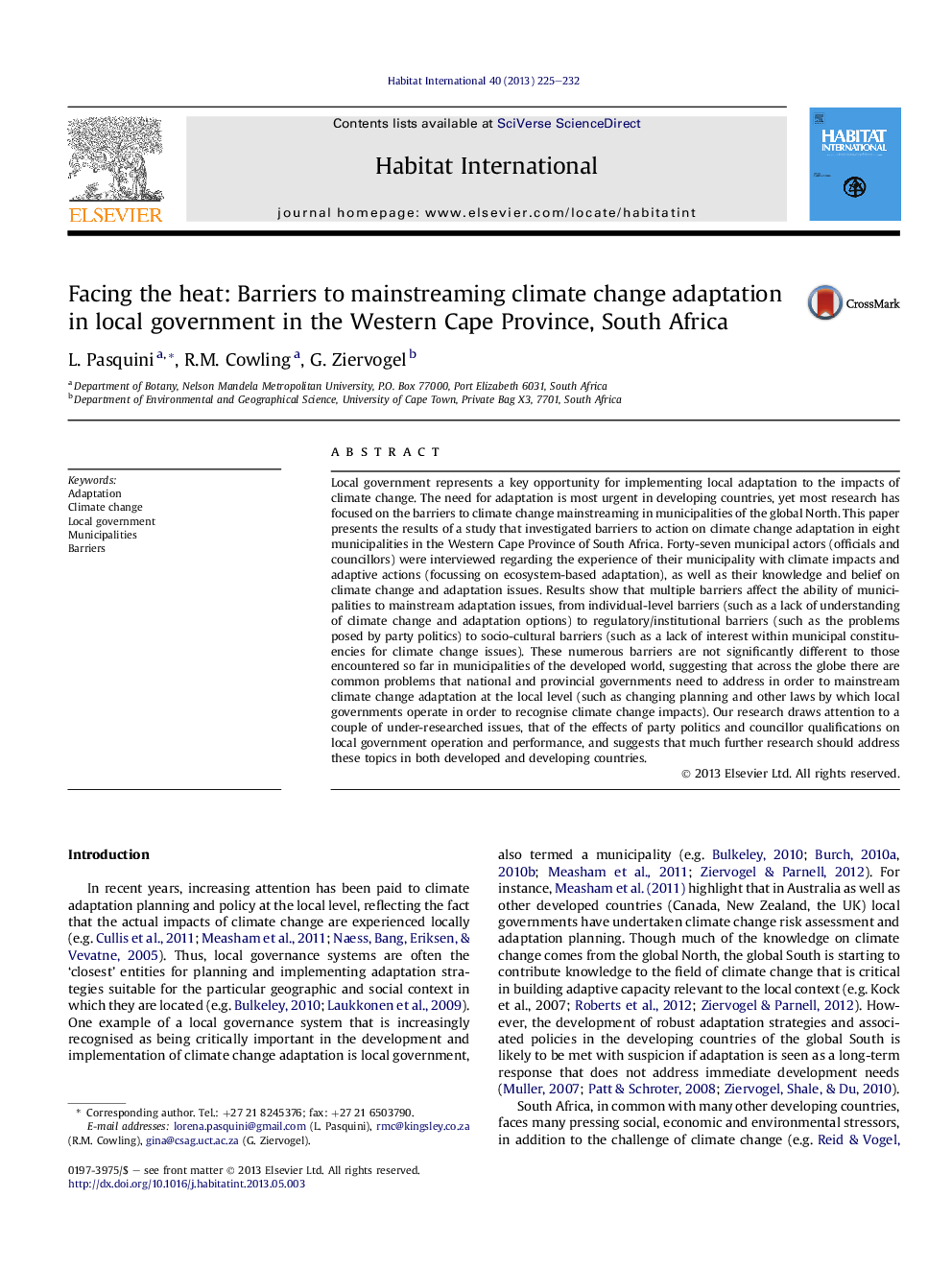| Article ID | Journal | Published Year | Pages | File Type |
|---|---|---|---|---|
| 7456590 | Habitat International | 2013 | 8 Pages |
Abstract
Local government represents a key opportunity for implementing local adaptation to the impacts of climate change. The need for adaptation is most urgent in developing countries, yet most research has focused on the barriers to climate change mainstreaming in municipalities of the global North. This paper presents the results of a study that investigated barriers to action on climate change adaptation in eight municipalities in the Western Cape Province of South Africa. Forty-seven municipal actors (officials and councillors) were interviewed regarding the experience of their municipality with climate impacts and adaptive actions (focussing on ecosystem-based adaptation), as well as their knowledge and belief on climate change and adaptation issues. Results show that multiple barriers affect the ability of municipalities to mainstream adaptation issues, from individual-level barriers (such as a lack of understanding of climate change and adaptation options) to regulatory/institutional barriers (such as the problems posed by party politics) to socio-cultural barriers (such as a lack of interest within municipal constituencies for climate change issues). These numerous barriers are not significantly different to those encountered so far in municipalities of the developed world, suggesting that across the globe there are common problems that national and provincial governments need to address in order to mainstream climate change adaptation at the local level (such as changing planning and other laws by which local governments operate in order to recognise climate change impacts). Our research draws attention to a couple of under-researched issues, that of the effects of party politics and councillor qualifications on local government operation and performance, and suggests that much further research should address these topics in both developed and developing countries.
Related Topics
Social Sciences and Humanities
Social Sciences
Development
Authors
L. Pasquini, R.M. Cowling, G. Ziervogel,
